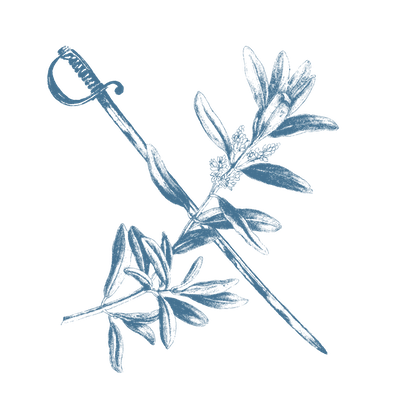War and Peace in Jewish Thought and History
Applications will be due November 10, 2025.
 The Katz Center for Advanced Judaic Studies at the University of Pennsylvania invites applications for its 2026–27 international fellowship program, a year focused on war and peace in Jewish history, thought, and culture.
The Katz Center for Advanced Judaic Studies at the University of Pennsylvania invites applications for its 2026–27 international fellowship program, a year focused on war and peace in Jewish history, thought, and culture.
War has been a part of Jewish experience since its very beginnings, and so too has the aspiration for peace. The Katz Center aims to use its fellowship program to support new research into how Jewish history, culture, thought, and expression have been shaped by and shape the experiences of war and peace. Beyond exploring the myriad ways that Jews and Judaism have been impacted by the physical and historical realities of war and peace, we seek to explore how both experiences have developed and figure in philosophical, ethical, political, and literary thinking as well (both Jewish and non-Jewish).
These questions, themes, and problematics can be addressed in relation to any part of the world and any empire or nation-state, and drawing on any point in history. Among the lines of research that could fall under this rubric are but are not limited to:
- Depictions of war and peace in classical sources
- Impact of war and peace on the creation of ancient sources
- Jews and diplomacy
- Jews and the military
- Eschatology
- The business of war
- The rhetorical connection between Jews and warfare in philosophy and political thought
- Jewish bellicosity in antisemitic discourse
- Pacifism
- Ideas of heroism and commemoration
- War and Peace in art and literature
- Families, media, religion, etc. as they intersect with the theme
- Refugees and prisoners of war
- Diasporism’s connection to war and peace
The Katz Center welcomes relevant applications from any subfield of Jewish studies and adjacent fields. The goal of the Katz Center fellowship is to support individual research projects but also to promote intellectual community through conversation, conferences, and other activities meant to bridge across differences among disciplines and subfields, and applications will be evaluated based on their individual merits and their potential to contribute to the experience of other fellows.
Selected fellows are provided with a stipend for a year or a semester and the time and resources needed to pursue their individual projects (including an office, computer, and library privileges at the University of Pennsylvania), and they are expected to actively engage in the intellectual life of the fellowship community. All applicants must have a doctoral degree in hand by the start of the fellowship. Fellows are expected to live in Philadelphia for the term of their fellowship, which can run for the entire academic year (September–April) or for a single semester.
Special Opportunity for Early Career Scholars
In an effort to create the possibility of a second year of support for early career scholars, the Katz Center has partnered with Ben-Gurion University of the Negev to offer scholars without a tenure track position who submitted their doctoral thesis within five years prior to application an opportunity to use the Katz Center application process to also apply for a second-year fellowship in 2027–28 at BGU in Beersheva, Israel. This second-year fellowship, offered by BGU’s Center for the Study of Conversion and Inter-Religious Encounters (CSoC), will be in the context of a different cohort, on the wider theme of War and Peace in World Religions. Candidates who will accept the Katz Center's fellowship will be invited to submit their applications to CSoC.
Read more on the CSoC website. More information, including how to apply, can be found in the Katz Center application.
Opportunity for University of Pennsylvania Faculty
The Katz Center offers course relief aimed at Penn faculty in the School of Arts and Sciences who want to become involved in the Center’s annual fellowship program but cannot commit to the full-time participation that the regular fellowship requires. Applications are due on February 10, 2025. Find the details on and how to apply here.